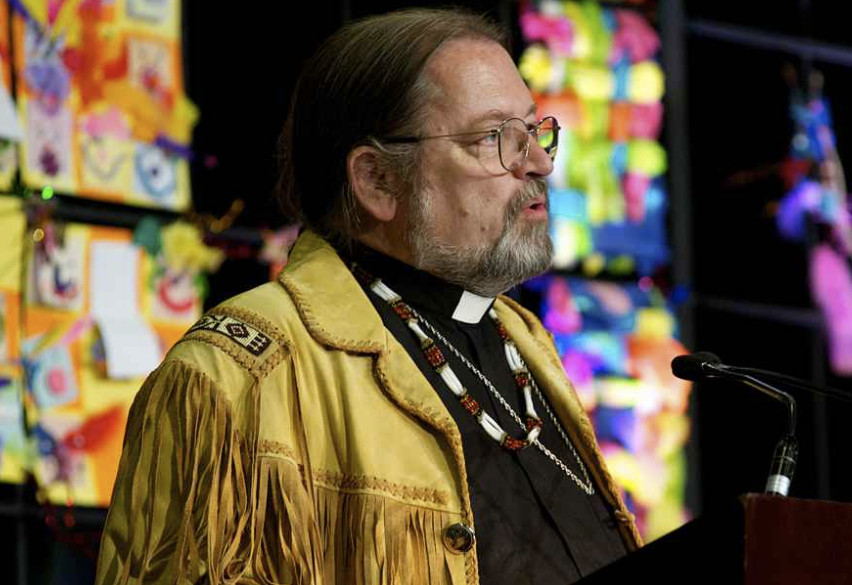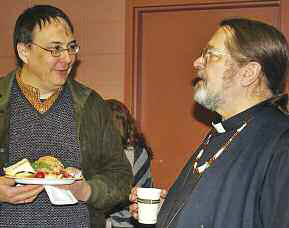Read it all here:
Dear Senator Beyak:
Not only in the Red Chamber on Parliament Hill, but across the country, many people – both Indigenous and non-Indigenous – were dismayed by your remarks. You said “I was disappointed in the TRC’s Report and that it didn’t focus on the good,” associated with Residential Schools. Had you, Senator, made these remarks within a discussion of the TRC’s Report, your comments might have been less shocking.
Senator Beyak, you are quite right in saying that for a small minority of survivors, their personal experiences of Residential School were “good”. But in much greater numbers, the personal experiences of children who were housed in those schools were “bad” – very bad in fact. One only needs to have attended a local, regional or national event hosted by Canada’s Truth & Reconciliation Commission to know this. The Commissioners listened to the personal stories of thousands of students – of survivors – all of which bore witness to the horrific experience they had.
There are hundreds of students who went to Residential Schools administered by the Anglican Church of Canada (ACC). They have told their stories at our church’s National Native Convocation and at Sacred Circle Gatherings. We have been rendered speechless by what we heard. We have hung our heads in shame and raised them with remorse over the pain our church inflicted upon those children.
There was nothing good about a federal government policy of forcibly removing children “from their evil surroundings”, housing them in schools with the intent of “killing the Indian in the child…and turning them into a civilized adult”. It was an attempt at cultural genocide, an attempt whose failure bears witness to the courage and resilience of those children and their communities. As elder Barney Williams of the Survivors’ Society has so often said, “We were all brave children.”
There was nothing good about practices of taking away children, removing their traditional dress, cutting their hair, taking away their name, confiscating their personal effects and giving them a number.
The letter from Fred Hiltz, Mark MacDonald and Michael Thompson continues in the same vein with more fervent breast-beating.
While it seems beyond dispute that there was abuse in the residential schools, what really seems to be bothering the authors of this letter is the underlying assumption of the day that the Christian, Western world view held by the government, teachers and missionaries involved in the schools was superior to that of the aboriginals. That was the real evil at work, that is what was at the root of the abuse.
The church has since seen the light and now holds the opposite opinion: Western traditions, Christendom, perhaps even Christianity itself, are inferior to just about any other culture so long as the culture is not grounded in Judeo-Christian beliefs.
For another perspective, this is worth a look:
On June 11, 2008, Stephen Harper issued an apology for the residential school system in Canada. He called it a “sad chapter in our history,” noting that its primary objectives “were to remove and isolate children from the influence of their homes, families, traditions and cultures, and to assimilate them into the dominant culture … the government of Canada sincerely apologizes and asks the forgiveness of the aboriginal peoples of this country for failing them so profoundly. Nous le regrettons. We are sorry. Nimitataynan. Niminchinowesamin. Mamiattugut.”
The National Post has carried many stories about these schools before and since that apology. And every time we do, it is interesting to see that most of the letters we receive argue that the schools have been unfairly portrayed in the media.
That phenomenon was on display again this week, following the publication of last Saturday’s story, “4,000 Children died in residential schools; Truth commission.” As that story detailed, “commission officials expect that number to rise as researchers access much more complete files from Library and Archives Canada and elsewhere.”
Letter writers commenting on that story this week complained that the article lacked important historical context.
“Nice work, National Post, as you continue to dump on the charitable work accomplished by generations of selfless missionaries, physicians, nurses and teachers of the Canadian North,” wrote C. Lutz, of Haliburton, Ont. “[This story] heavily spins out a ‘physical and sexual abuse’ [narrative] as if 150,000 Indian and Inuit children had gained nothing good from taxpayer-provided white education. At least some of them learned enough English and French to, fluently, play the system and bite the hand that had fed them.”
“By today’s standards, 4,000 deaths out of a total of 150,000 students is shocking,” wrote Russel Williams of Georgeville, Que. “But given the period covered, 1870 to 1996, it may compare quite favourably with Canada at large, or Canadian aboriginal communities specifically, for the same period. One must bear in mind that much of this period predates immunization for smallpox, whooping cough, and diphtheria. It also predates penicillin for treatment of TB. Given the above, perhaps the statistic is not as alarming as it first might seem.”
“It was undoubtedly a terrible thing to be taken from your family, but in the early days, the reserves were impoverished and 90% of First Nations people were infected with tuberculosis,” added Michelle Stirling. “It is hard to say if the students got tuberculosis at the residential schools. And until the 1950s, tuberculosis was the leading cause of death of all Canadians.
“I am aware that some people will feel that I am defending the known cases of abuse and cruelty — I do not defend these,” Ms. Stirling continued. “My own father was the victim of the same [abuse] at the hands of his own white Anglo-Saxon teachers at his British boarding school. He used to have his left hand beaten black and blue and tied behind his back because he was left-handed.”
We also heard from a non-native who attended the St. Paul’s Indian Residential School in southern Alberta (the Blood/Kainai Reserve) for six years.
“When so many Canadians rely on publications like the National Post to stay informed on important issues, it is disappointing to see an article like that,” wrote Mark DeWolf of Halifax. “How does this figure compare to the number of First Nations children who died outside of the schools? Over 126 years and out of 150,000 students, the figure is perhaps not so surprising, given the deplorable health conditions on some reserves and high rates of communicable illness. More could and should have been done to ensure the health of these students, but let’s have responsible journalism, not emotional pandering to readers.”
Like this:
Like Loading...



